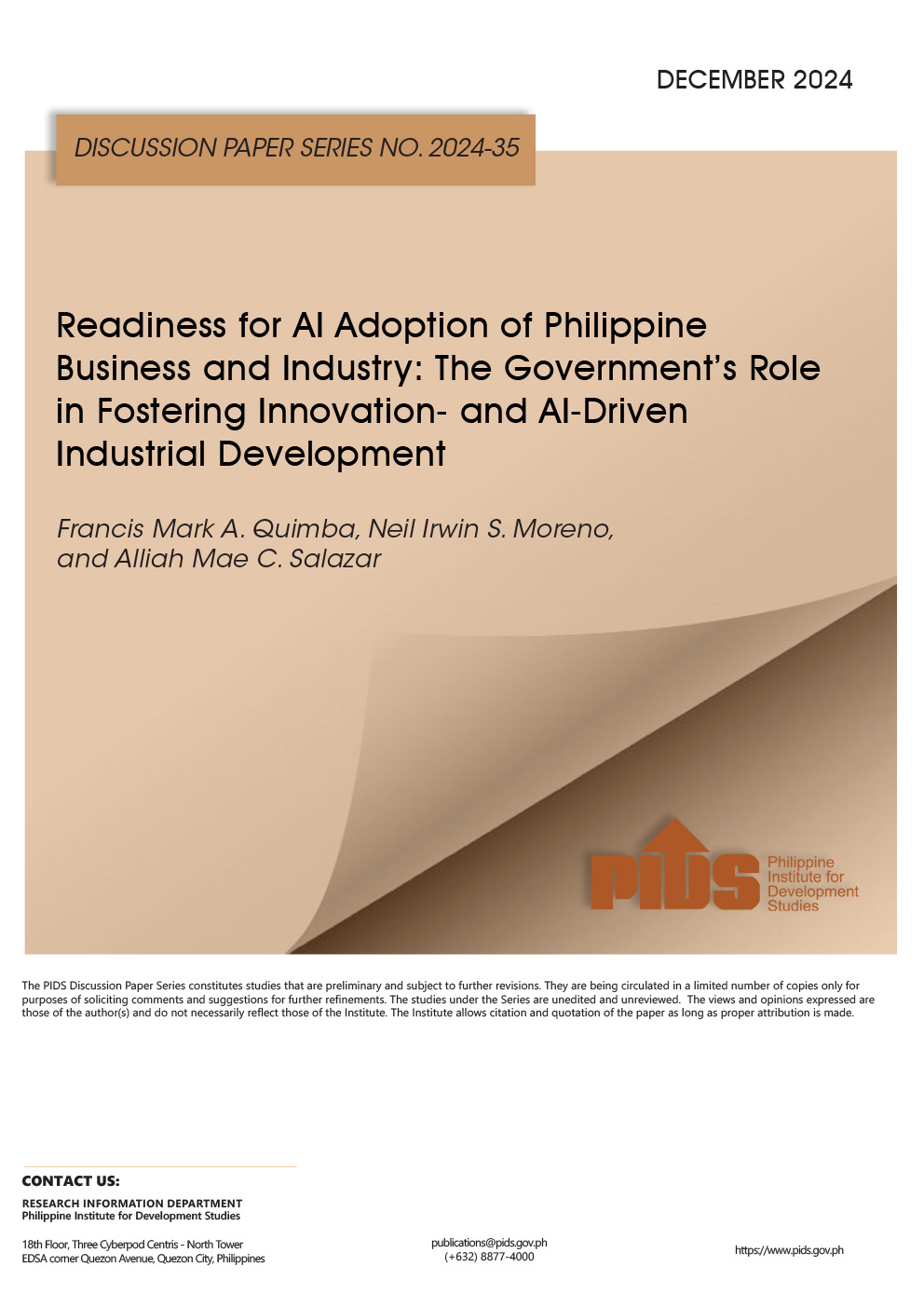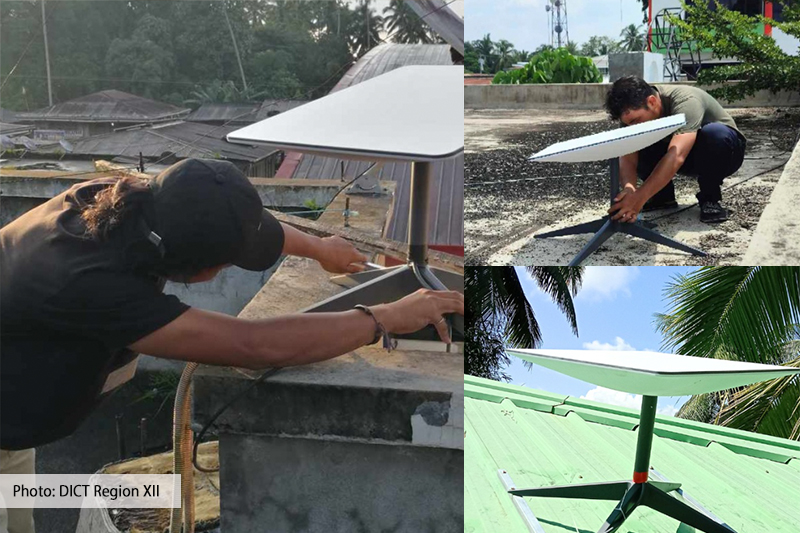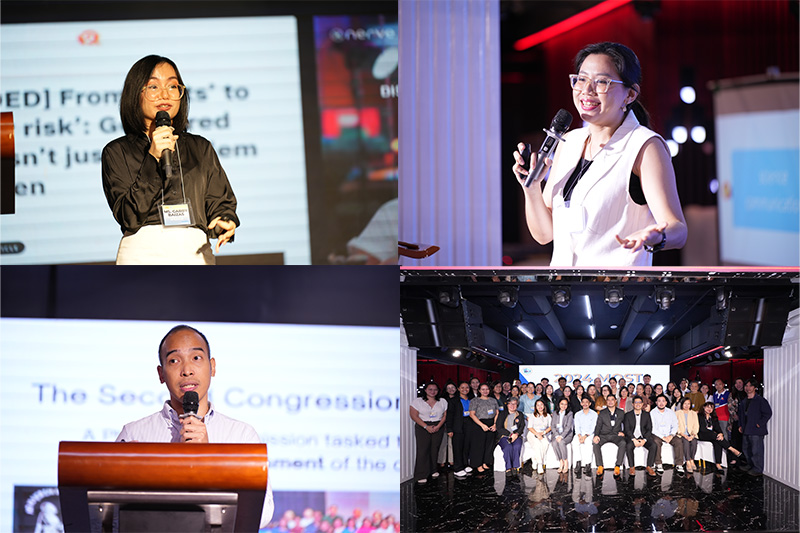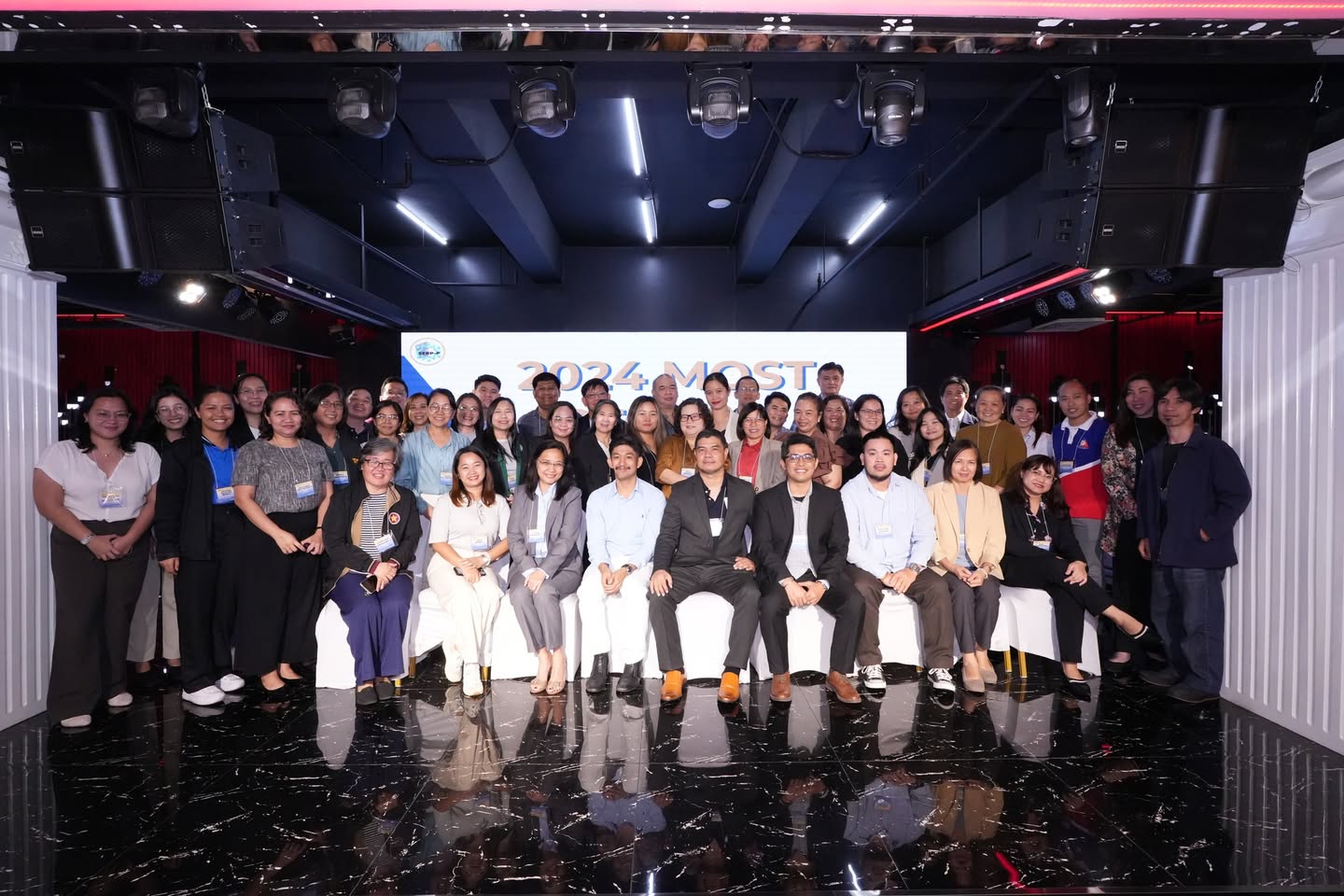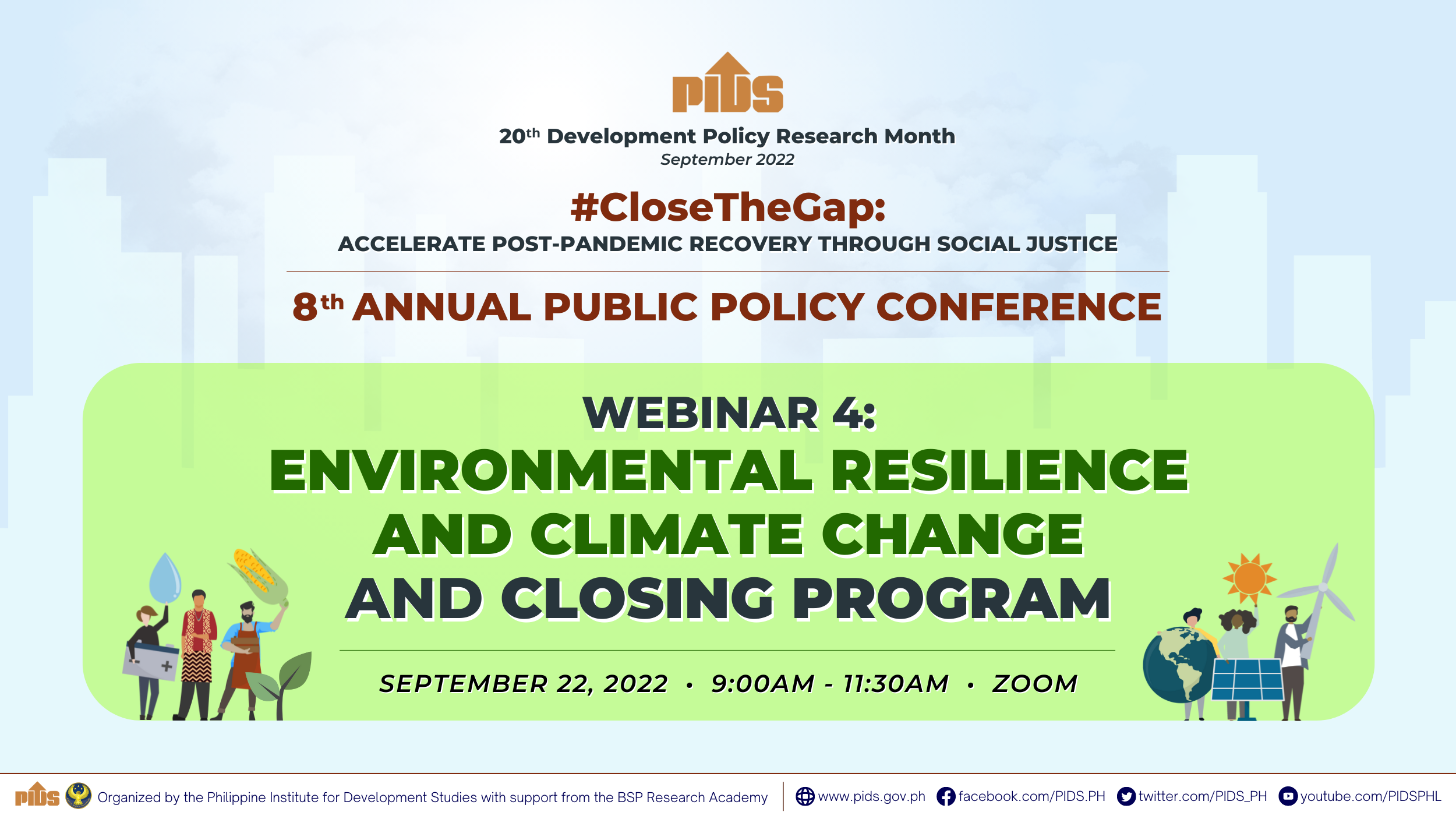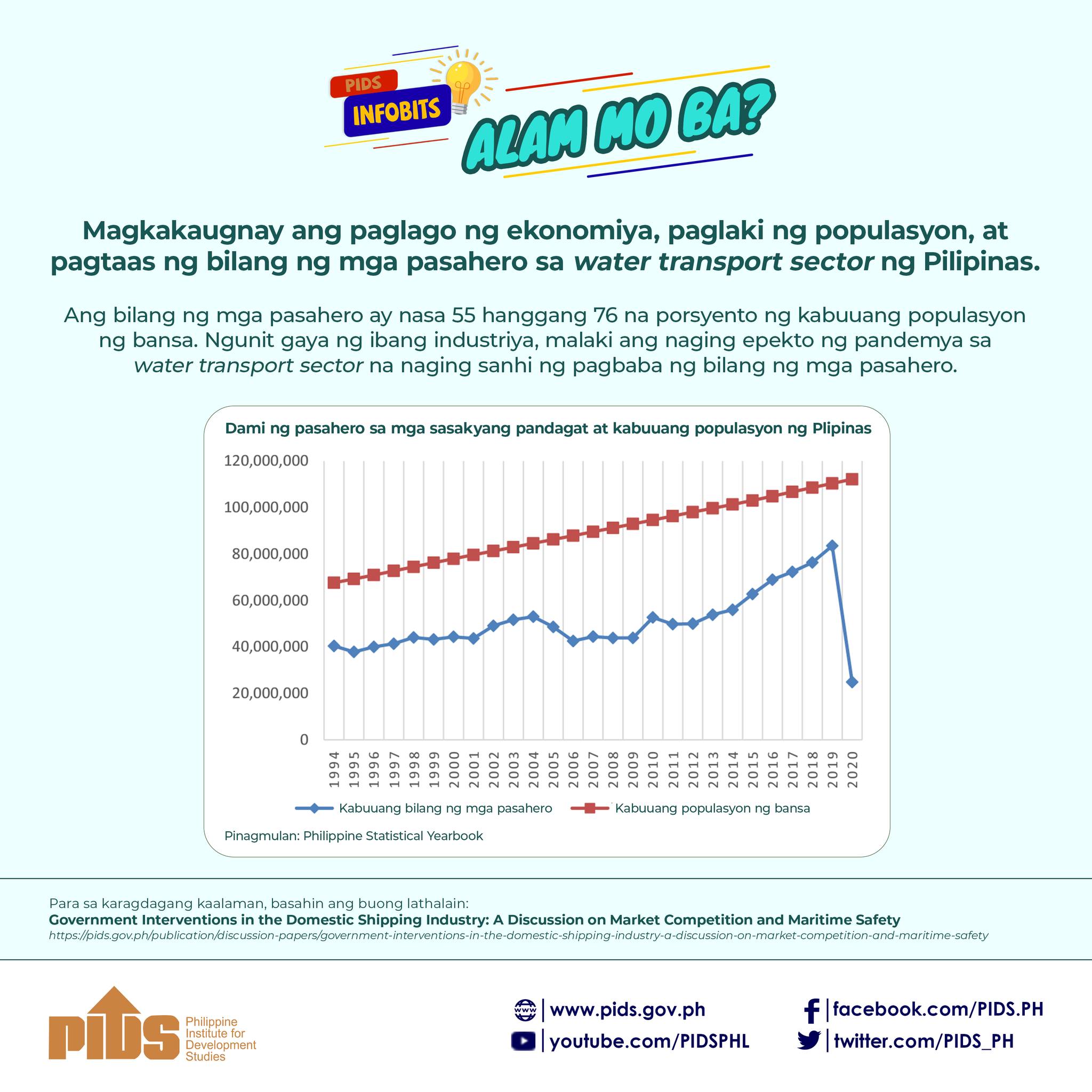Establishing a dynamic and enabling ecosystem built on strong government-industry-academe partnerships and data governance will drive more innovation in Philippine business and industry.
This was the consensus of experts at a recent webinar organized by the Philippine Institute for Development Studies (PIDS) featuring the study “The Extent of Innovation in Philippine Business and Industry: Results of the 2021 PIDS Survey of Innovation Activities”. Authored by PIDS Senior Research Fellows Jose Ramon Albert, Francis Mark Quimba, and Ramonette Serafica, Supervising Research Specialists Jana Flor Vizmanos and Neil Irwin Moreno, and Research Analysts Abigail Andrada, Mika Muñoz, and Angelo Hernandez, it presented the results of the 2021 PIDS Survey of Innovation Activities.
The study showed the innovation activities of Philippine firms and industries, offering valuable insights for developing policies to mainstream innovation in the country.
Webinar discussant and Department of Science and Technology-Philippine Council for Industry, Energy, and Emerging Technology Research and Development Supervising Research Specialist Joseph Escorial highlighted the need for relevant sectors to foster innovation, enhance digital skills, and adopt data governance frameworks to transition to digital transformation successfully.
“A whole-of-society approach deals with strengthening partnerships with relevant institutions to enhance mutually reinforcing collaborations on innovation policies. To realize this, there is a need to revisit institutional arrangements to address fragmentation and promote information sharing and cooperative knowledge management,” he said.
He added that supporting innovation entails establishing an enabling policy environment wherein economic policies and regulations are aligned with national efforts to create a productive innovation ecosystem.
Department of Trade and Industry Competitiveness and Innovation Group Undersecretary Rafaelita Aldaba,represented by staff Derrick Quijada, echoed the need to create an enabling environment for research innovation.
“We need to strengthen the implementation of the Technology Transfer Act, capacitate higher educational institutions to establish pathways for publications and patents to be commercialized, strengthen our intellectual property (IP) system, and simplify and reduce the cost of IP filing and processing,” she explained.
Meanwhile, National Innovation Council Executive Director Diane Gail Maharjan discussed the importance of creating a culture of innovation by aligning education and human capital development programs with industry needs.
“The collaboration among universities, businesses, and consultants is essential to encourage innovation activities. We must accelerate government-industry-academe collaboration through innovation alliances and incubation and accelerator programs,” she said.
Albert, who presented the survey results at the webinar, urged the government to collaborate with the private sector to foster innovation through workforce reskilling and upskilling, particularly in digital skills, where the Philippines lags behind its Southeast Asian neighbors.



